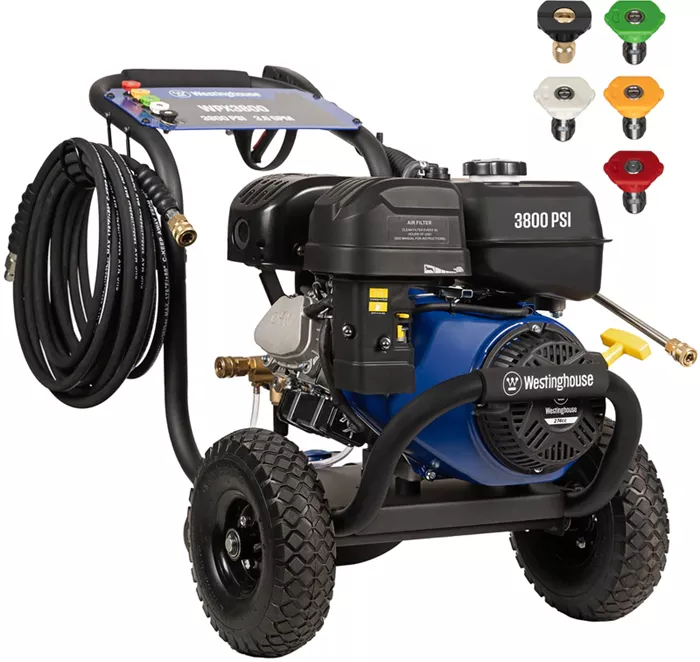Pressure washing is an effective method for cleaning driveways, removing dirt, grime, and stains that accumulate over time. The process involves using a high-pressure stream of water to clean and rejuvenate the surface. However, one common question that arises when planning a driveway cleaning project is: how long does it actually take to pressure wash a driveway? This article will explore the factors that influence the time required to complete this task and provide insights into what you can expect during the process.
Factors Influencing Cleaning Time
Size of the Driveway
The size of your driveway is a primary factor in determining how long it will take to pressure wash. A larger driveway will naturally take more time to clean than a smaller one. For instance, a standard two-car driveway may take significantly less time than a long, multi-car driveway or a commercial parking lot. Typically, you can expect a small to medium-sized residential driveway to take anywhere from 30 minutes to 1 hour to clean. Larger driveways could take between 1 to 2 hours or more, depending on their dimensions.
Surface Condition
The condition of the driveway plays a significant role in how long the pressure washing process will take. Driveways with heavy staining, oil spills, or significant dirt buildup will require more time to clean compared to those with minor dirt and stains. For instance, a driveway that has not been cleaned for several years and has deep stains may require additional pre-treatment steps, such as applying a degreaser or stain remover. This pre-treatment, combined with the actual pressure washing, can extend the time required for the job.
Type of Surface Material
Different surface materials respond differently to pressure washing. Concrete driveways are the most common and generally easy to clean with a pressure washer. Asphalt driveways, while also relatively straightforward, may require special considerations due to their texture and composition. Paver driveways or those made of decorative stone might take longer due to their intricate patterns and joints that need careful attention. Each material has its own set of requirements and challenges, which can affect the overall time needed for cleaning.
Pressure Washer Power
The power of the pressure washer, measured in PSI (pounds per square inch) and GPM (gallons per minute), impacts the cleaning speed. Higher PSI and GPM ratings mean that the pressure washer can deliver more water at a faster rate, allowing for quicker cleaning. Conversely, a lower-powered pressure washer may take longer to achieve the same results. When selecting a pressure washer, ensure that it is suitable for the size and condition of your driveway to optimize cleaning efficiency.
Experience and Technique
The skill and experience of the person operating the pressure washer also influence the time required. An experienced operator will work more efficiently and effectively, ensuring that all areas of the driveway are thoroughly cleaned. They will be familiar with the correct techniques for handling the pressure washer, including the appropriate distance from the surface and the correct spray patterns. In contrast, an inexperienced user may take longer due to a learning curve and potential mistakes.
see also: What Is the Best Pressure Washer to Buy?
Typical Cleaning Process
Preparation
Preparation is a crucial step that affects the overall duration of the pressure washing process. Before starting, you need to clear the driveway of any obstacles such as vehicles, outdoor furniture, and debris. Additionally, it is essential to inspect the surface for any damage or issues that might need special attention. Applying a pre-treatment solution to stubborn stains or heavily soiled areas can also add to the preparation time. Typically, preparation takes about 10 to 20 minutes, depending on the condition and clutter of the driveway.
Pressure Washing
Once the preparation is complete, the actual pressure washing process begins. This involves applying the pressure washer to the surface in a systematic manner, ensuring that all areas are covered. For a standard residential driveway, the pressure washing itself usually takes between 30 to 60 minutes. Larger driveways or those with extensive staining may require additional time. The process includes moving the pressure washer across the surface, overlapping each pass to ensure even cleaning.
Post-Cleaning
After pressure washing, there are a few additional steps to complete the job. This includes inspecting the driveway to ensure that all areas have been cleaned thoroughly and addressing any missed spots. In some cases, a final rinse may be required to remove any remaining debris or cleaning agents. Allowing the driveway to dry is also an essential step, as the surface will be wet and may need several hours to dry completely. Typically, post-cleaning tasks add another 15 to 30 minutes to the overall time.
Conclusion
The time it takes to pressure wash a driveway can vary widely based on several factors, including the size and condition of the driveway, the type of surface material, the power of the pressure washer, and the experience of the operator. On average, you can expect a standard residential driveway to take between 1 to 2 hours from start to finish, including preparation and post-cleaning tasks.
Understanding these factors and preparing adequately can help streamline the pressure washing process and ensure that your driveway is cleaned efficiently and effectively. By choosing the right equipment, techniques, and approach, you can achieve a refreshed and rejuvenated driveway that enhances the overall appearance of your property.

